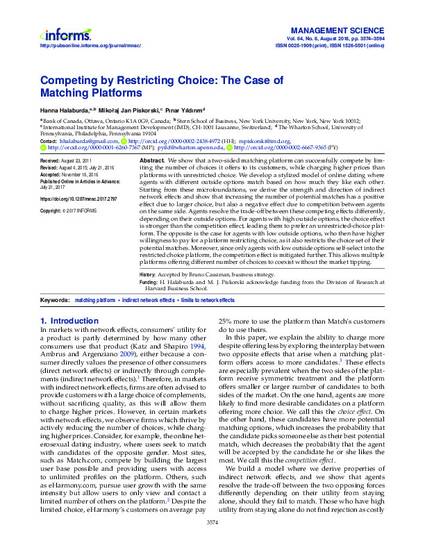
Article
Competing by Restricting Choice: The Case of Search Platforms
Management Science
(2018)
Abstract
We show that a two-sided platform can successfully compete by limiting the choice of potential matches it offers to its customers while charging higher prices than platforms with unrestricted choice. Starting from micro-foundations, we derive the strength and direction of network effect, and find that increasing the number of potential matches not only has a positive effect due to larger choice, but also a negative effect due to competition between agents on the same side. Agents with heterogeneous outside options resolve the trade-off between the two effects differently. For agents with a lower outside option, the competitive effect is stronger than the choice effect. Hence, these agents have higher willingness to pay for a platform restricting choice. Agents with a higher outside option prefer a platform offering unrestricted choice. Therefore, the two platforms may coexist without the market tipping. Our model may help explain why platforms with different business models coexist in markets using the stylized model of online dating.
Keywords
- matching platform; indirect network effects; limits to network effects
Publication Date
2018
Citation Information
Hanna Halaburda and Mikolaj Jan Piskorski, "Competing by Restricting Choice: The Case of Search Platforms," Management Science 64 (2018): 3574-3594
